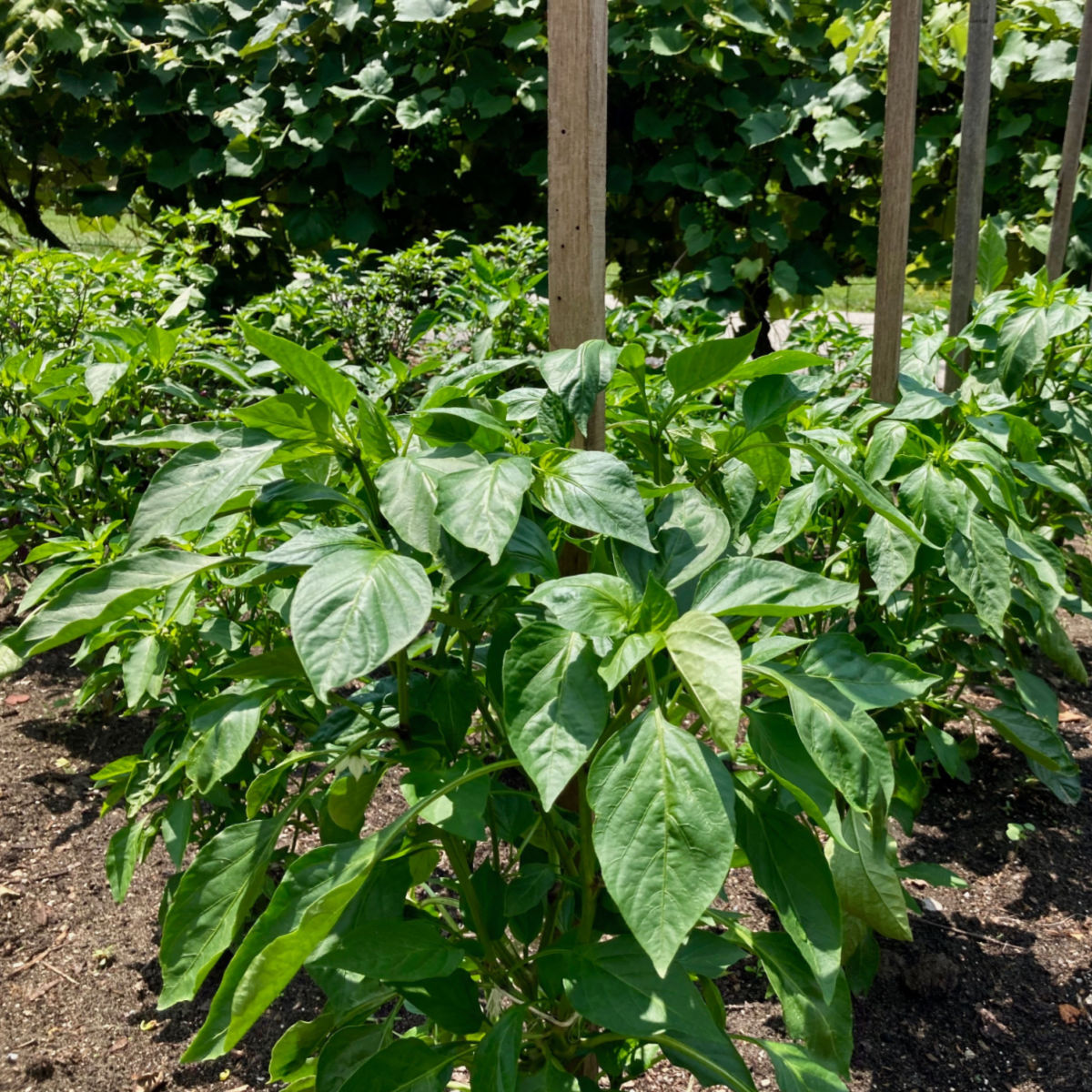Best Fertilizers for Peppers: Boost Development and Flavor Naturally
Best Fertilizers for Peppers: Boost Development and Flavor Naturally
Blog Article
Organic Vs. Synthetic Fertilizers: Which Is Best for Supporting Healthy And Balanced Pepper Plants?
In the world of supporting healthy pepper plants, the selection in between organic and artificial fertilizers stands as a pivotal decision with far-reaching effects. While both choices aim to supply necessary nutrients to support plant growth, the subtleties of their influence on the soil, plant wellness, and the environment trigger a discussion that mirrors throughout the gardening area. Recognizing the unique advantages and possible mistakes of each plant food type is crucial for pepper cultivators seeking to maximize their yields while keeping a lasting and eco-conscious approach.
Benefits of Organic Plant Foods
Organic plant foods use an environmentally-friendly and lasting technique to nourishing pepper plants, giving necessary nutrients without using synthetic chemicals. These all-natural plant foods are derived from natural sources such as garden compost, manure, bone meal, and algae, promoting dirt health and biodiversity. Unlike synthetic plant foods, natural alternatives release nutrients slowly, guaranteeing a consistent and well balanced supply for pepper plants to thrive.
One considerable benefit of natural fertilizers is their ability to boost soil structure and water retention. By boosting dirt health, natural plant foods advertise beneficial microbial activity, which helps in nutrient uptake by pepper plants. Additionally, organic plant foods decrease the danger of chemical run-off, protecting water sources from pollution and guarding the setting.
Furthermore, natural plant foods add to lasting soil fertility by promoting the development of beneficial soil microorganisms. These microorganisms aid break down organic issue, releasing nutrients in a type that is easily available to pepper plants. best fertilizers for peppers. By fostering a healthy soil environment, organic plant foods support lasting pepper cultivation techniques that profit both plants and the setting
Downsides of Synthetic Fertilizers
Synthetic fertilizers, in comparison to their organic equivalents, position different disadvantages when utilized to nurture pepper plants, affecting both plant wellness and environmental sustainability. One major downside of artificial plant foods is their propensity to seep nutrients from the soil quickly.
Additionally, the overuse of synthetic plant foods can add to water pollution. Excess fertilizers not soaked up by plants can remove right into water bodies, bring about eutrophication, where algae blooms diminish oxygen degrees in the water, harming marine life. Artificial plant foods are normally acquired from non-renewable resources, such as fossil gas, contributing to carbon discharges and environmental deterioration during their manufacturing.
Nutrient Absorption Comparison
When contrasting synthetic and organic plant foods in terms of nutrient absorption, natural plant foods have the benefit of offering an extra balanced and slow-release source of nutrients. Organic fertilizers include a range of macro and micronutrients that are not just beneficial for the plants however additionally promote healthy soil microbial task, which helps in nutrient uptake.
In addition, organic fertilizers enhance soil structure and water retention capacity, permitting pepper plants to access nutrients a lot more effectively. This improved soil top quality assists in root advancement, allowing much better nutrient absorption. Artificial plant foods, although at first improving plant growth because of their high nutrient concentrations, might impede lasting nutrient absorption by degrading dirt health in time.
Environmental Influence Factors To Consider

On the various other hand, synthetic fertilizers, although frequently more concentrated and promptly readily available to plants, can have damaging impacts helpful hints on the setting if not applied properly (best fertilizers for peppers). Their manufacturing calls for high power inputs, bring about greenhouse gas exhausts and adding to environment modification. The overflow of excess synthetic fertilizers can infect water sources, leading to eutrophication and damaging marine environments.
Finest Fertilizer Practices for Peppers
To accomplish this, it is essential to adhere to ideal fertilizer practices customized to the certain requirements of pepper plants. One important practice is to carry out a soil test prior to applying any plant foods.
An additional crucial method is to feed pepper plants at the ideal time. Generally, peppers gain from receiving fertilizer at growing and afterwards again when they begin to flower. Over-fertilizing can lead to nutrient inequalities and hurt the plants, so it is essential to follow advised application prices.
Additionally, picking a well balanced plant food with an NPK proportion that matches pepper plants' demands is basic. Eventually, incorporating natural and synthetic plant foods deliberately can aid support healthy pepper plants while reducing environmental effect.
Final Thought

Organic fertilizers use a lasting and environmentally-friendly technique to beneficial pepper plants, giving necessary nutrients without click to read more the use of synthetic chemicals. Unlike synthetic fertilizers, organic alternatives release nutrients slowly, making certain a well balanced and consistent supply for pepper plants to grow.
Artificial plant foods, in comparison to their natural equivalents, posture various downsides when utilized to nourish pepper plants, influencing both plant health and ecological sustainability. When contrasting organic and synthetic fertilizers in terms of nutrient absorption, organic plant foods have the advantage of giving an extra well balanced and slow-release resource of nutrients.In addition, natural plant foods enhance soil structure and water retention ability, allowing pepper plants to accessibility nutrients a lot more effectively.
Report this page